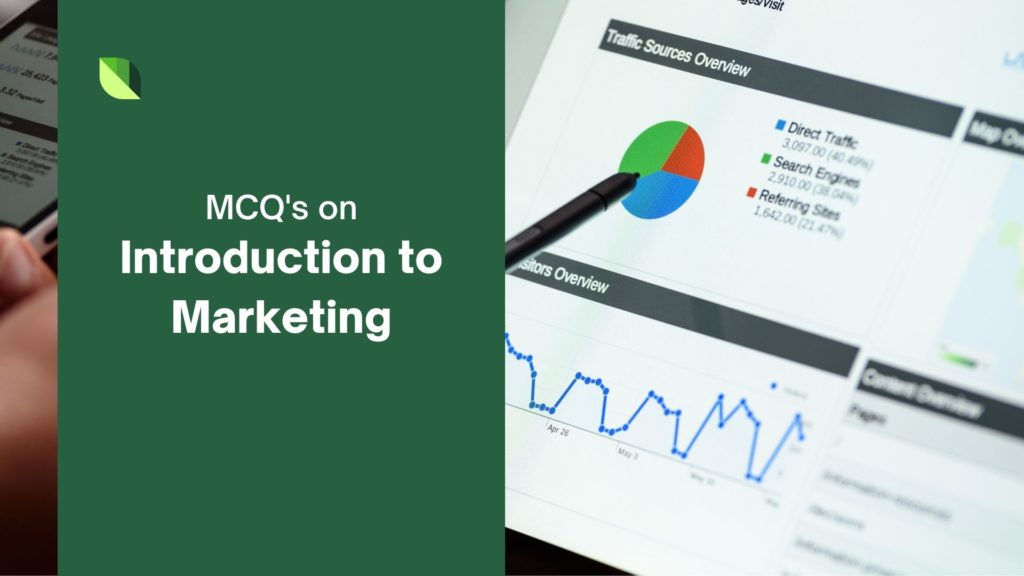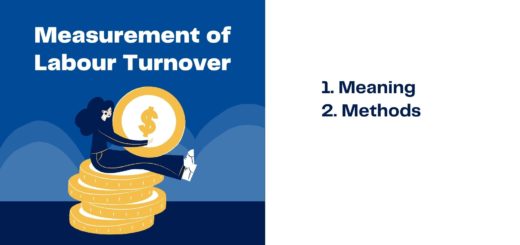Introduction to Marketing MCQ | 50 Free MCQs
Introduction to Marketing MCQ
1. …………. Is the process of identifying and satisfying the needs of the customer.
a. Marketing
b. sales
c. distribution
d. advertising
2. ……………… plays a positive role in solving marketing problems.
a. Marketing research
b. customer behavior
c. product concept
d. management
3. …………….. methods are the analysis and presentation of all information estimates.
a. marketing information system.
b. consumer relationship management
c. marketing opportunities isolation
d. buying process
4. Classification of goods into different groups in different markets means…………….
a. marketing
b. marketing information system
c. marketing opportunities isolation
d. market segmentation
5. …………. means bringing more than one product from a company to market.
a. product mix
b. market segmentation
c. promotion mix
d. distribution mix
6. The …………… concept rests on four pillars: target market, customer needs, integrated marketing and profitability.
a. Product
b. Production
c. Marketing
d. Holistic
7. One technique of building CRM is data mining …………….
a. Data mining
b. MIS
c. Marketing research
8. …………… concept revolves around the customers.
a. Production
b. Marketing
c. Exchange
d. Selling
9. …………….. Exchange is the oldest concept of marketing.
a. Product
b. Exchange
c. Production
d. Marketing
10. Fulfilling social responsibility is one of the essentials of ………… concept.
a. Societal
b. Production
c. Product
d. Exchange
| Answers: 1)Marketing 2)Marketing research 3)marketing information system 4)market segmentation 5)product mix 6)Marketing 7)Data mining 8)Marketing 9)Exchange 10)Societal |

11. ………… Production concept of marketing balance between social welfare and profit.
a. Product
b. Selling
c. Production
12. The marketing concept was replaced by …………. after 1980s.
a. Selling concept
b. Societal concept
c. Holistic concept
13. According to ………….. concept, consumers will prefer products that offer best quality, performance or innovative features.
a. Product
b. Exchange
c. Selling
14. Marketing research acts as a …………… intelligence of marketing firms.
a. Economic
b. Financial
c. Commercial
15. Consumer behaviour is always …………….. .
a. Stable
b. Unstable
c. Steady
16. ……………. is an element of demographic segmentation.
a. Personality
b. Age
c. Attitude
17. Market segmentation ………….. the total market.
a. Multiplies
b. Subtracts
c. Divides
18. In mass marketing strategy, market segmentation is not ……………… .
a. Introduced
b. Not introduced
c. Occasionally introduced
19. CRM ………….. customer retention.
a. Helps in
b. Provides no help in
c. Is against
20. Target marketing is …………. market segmentation.
a. Prior
b. Next to
c. Much before
| Answers: 11)Production 12)Societal concept 13)Product 14)Commercial 15)Stable 16) Age 17)Divides 18)Introduced 19)Helps in 20)Next to |
21. When product performance is more than customer expectations, is results in …………….. .
a. customer satisfaction
b. Customer delight
c. customer dissatisfaction
22. …………… concept of marketing assumes that customers will prefer those products which are aggressively promoted.
a. Production
b. Marketing
c. Selling
23. ………….. concept of marketing starts with identifying customer wants and ends up with the satisfaction of those wants.
a. Marketing
b. Product
c. Production
24. ………….. concept of marketing aims at a balance between society’s welfare, customer satisfaction and company’s profits.
a. Production
b. Selling
c. Societal
25. …………… concept of marketing assumes that customers will prefer those products that are widely available and are low cost.
a. Selling
b. Production
c. Product
26. …………… strategy refers to the introduction of new products in the market.
a. Product Development
b. Market Development
c. Market Penetration
27. …………… is the outcome of large production and distribution of goods.
a. Marketing intelligence
b. Marketing research
c. Economies of scale
28. …………….. is the incremental value of a brand over and above its physical assets.
a. Brand equity
b. Brand image
c. Brand loyalty
29. …………… research enables the marketer to identify the preferences of customers.
a. Market
b. Dealer
c. Consumer
30. …………….. marketing differentiates a firm from its competitors.
a. Relationship
b. Strategic
c. Integrated
| Answer: 21)Customer delight 22)Selling 23)Marketing 24)Societal 25)Production 26)Product Development 27)Economies of scale 28)Brand equity 29)Consumer 30)Strategic |
31. Observation is an important method of data …………….
a. collection
b. analysis
c. interpretation
32. ……………. refers to subdividing a larger market into smaller markets.
a. Niche Marketing
b. Market segmentation
c. Marketing Research
33. Market segmentation is the …………. activity of a marketer.
a. primary
b. secondary
c. tertiary
34. …………. is an important element of sociographic segmentation.
a. Culture
b. Age
c. Usage Rate
35. …………. is an important element of behavioural segmentation.
a. Region
b. Gender
c. Buying motives
36. …………. is an important element of demographic segmentation.
a. Age
b. Lifestyle
c. Locality
37. …………… marketing refers to marketing to a small segment of the market.
a. Small
b. Niche
c. Special
38. In ………… segmentation, consumers are classified on the basis of lifestyle and personality traits.
a. Geographic
b. Psychographic
c. Demographic
39. …………. data is the first-hand information collected for research.
a. Primary
b. Secondary
c. Outdated
40. …………. data refers to the data which is readily available.
a. Primary
b. Secondary
c. Outdated
| Answer: 31)collection 32)Market segmentation 33)primary 34)Culture 35)Buying motives 36)Age 37)Niche 38)Psychographic 39)Primary 40)Secondary |
41. …………… involves gathering, recording, analysing, data about specific marketing problems.
a. Marketing information system
b. Marketing research
c. Research and Development
42. Marketing decision support system is an important component of …………….. .
a. Marketing information system
b. Marketing research
c. Brand Research
43. …………….. provides information to the decision-maker on marketing related issues.
a. Segmentation
b. positioning
c. MIS
d. targeting
44. …………… is not a component of MIS.
a. Marketing research
b. internal company records
c. Marketing intelligent system
d. Niche marketing
45. …………… is a component of MIS.
a. Marketing research
b. Event Marketing
c. Niche marketing
d. Consumer behavior
46. Developing products for the mass market is …………… .
a. Economical
b. cheap
c. Expensive
d. despicable
47. A ……………. is a firm opinion about someone or something.
a. idea
b. proposal
c. belief
d. plan
48. A company needs efficient MIS to make use of …………….. information.
a. vague
b. indistinct
c. latest
d. hazy
49. Marketing research acts as a …………….. for accurate decision making
a. underwriter
b. facilitator
c. sponsor
d. guarantor
50. Marketing research is only an …………….. to decision making.
a. Obstruction
b. aid
c. Hindrance
d. obstacle
| Answer: 41)Marketing research 42)Marketing information system 43)MIS 44)Niche Marketing 45)Niche Marketing 46)Expensive 47)belief 48)latest 49)facilitator 50)aid |
Learn the chapters on TYBCOM from our YouTube channel.


